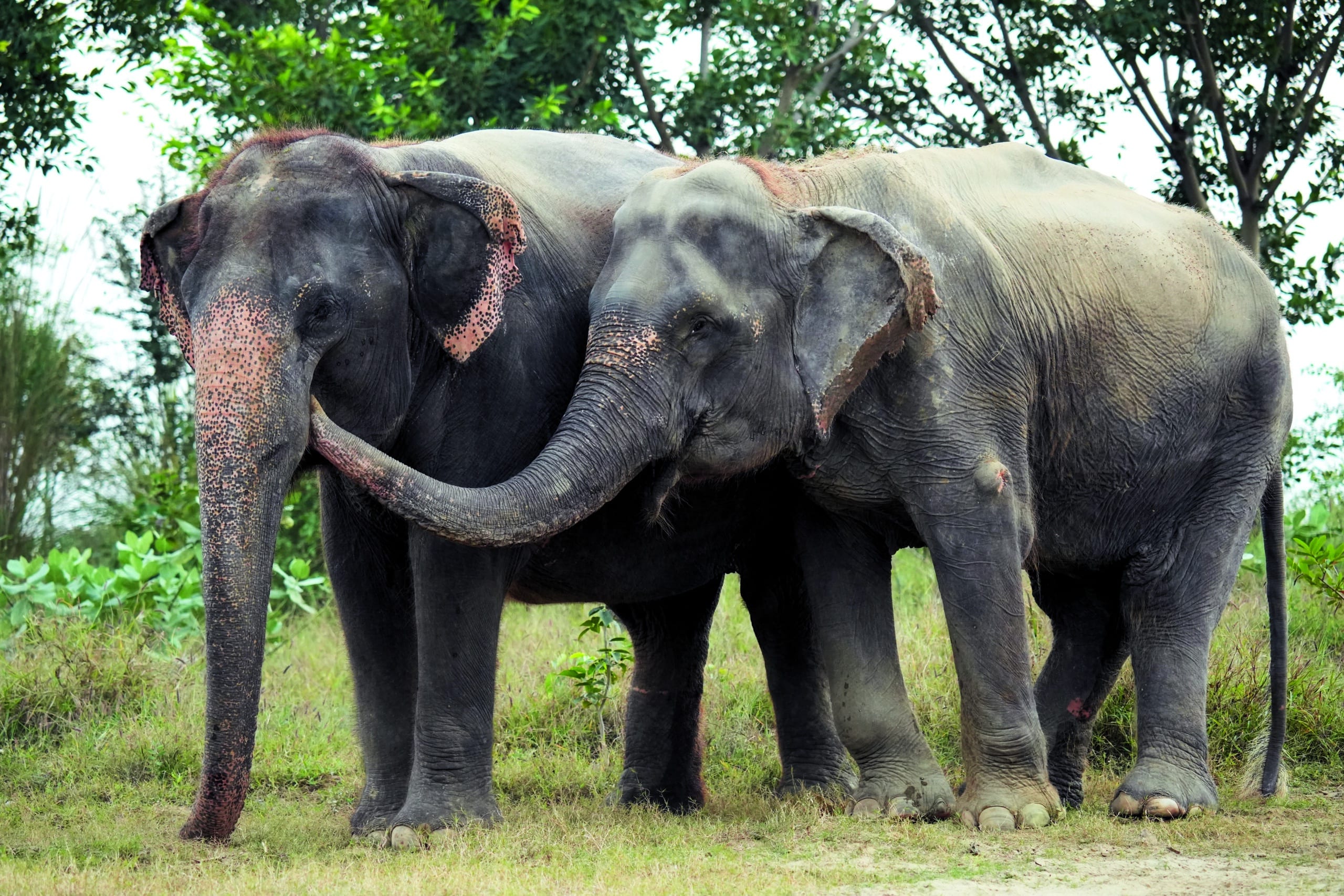You might remember Kalpana—I am happy to report that this year she celebrates her fifth rescue anniversary at Wildlife SOS. Formerly exploited and abused as a ‘begging’ elephant in Uttar Pradesh, Kalpana was rescued in 2019 and brought to the Wildlife SOS Elephant Hospital Campus (EHC) in Mathura for comprehensive...
SEOUL (22 Oct. 2020) – A new opinion poll in South Korea shows growing support for a ban on dog meat consumption, with 84% of those polled saying they don’t or won’t eat dog, and almost 60% supporting a legislative ban on the trade. The poll, conducted by Nielsen and commissioned by Humane Society International/Korea, is released on the day HSI/Korea rescues 170 dogs from a dog meat farm in Haemi, to seek new homes in the United States and Canada.
Key poll findings include:
- 84% of South Koreans haven’t consumed dog meat or say they are not willing to consume it in the future.
- 59% of South Koreans support banning dog meat, an increase of 24% from 2017, with opposition to a ban at an all-time low (fewer than half (41%) of the population.
- 57% of South Koreans believe dog meat consumption reflects poorly on Korea, increasing from 37% in 2017.
The 170 dogs rescued by HSI were kept in filthy cages on the dog meat farm until farmer Il-Hwan Kim asked HSI for help closing after 40 years in the dog meat business. This is the 17th dog farm permanently closed down by the animal protection group, and farmer Kim’s story is becoming increasingly familiar as the decline in popularity of dog meat in South Korea sees more farmers struggle to make a living. A further 26 dogs also headed to the United States to start a new life had been saved from the dog meat trade by HSI in previous rescue operations but had been unable to leave their South Korean temporary shelter until now due to COVID-19 travel restrictions. In total, HSI is taking 196 dog meat trade survivors out of South Korea on a single flight, including a poodle, Korean jindos and mastiffs, Pomeranians, terriers and a Labrador retriever.
Due to COVID-19 safety precautions, the rescue effort saw HSI’s U.S. team quarantine for two weeks at a government-sanctioned hotel in Seoul before being allowed to head to the dog meat farm to rescue the dogs. As dog adoption is not yet widely accepted in South Korea, HSI’s Shelter and Rescue partners in the United States and Canada will take the dogs and start the process of matching them with forever families. HSI hopes that its work to raise awareness about the benefits of adoption and promotion of its adoption success stories overseas, will gradually lead to more dogs finding forever families within the country.
Nara Kim, HSI/Korea’s dog meat campaign manager, says: “Every dog meat farm I’ve visited has a horrible stench of faeces and rotting food, but there is something different about this dog farm, it smells of death. The conditions are truly pitiful, and when we found these dogs they had looks of utter despair on their faces that will haunt us forever. Many of them are covered in painful sores and wounds from neglect, some have inflamed eyes and peer out blindly from their cage. I feel grateful they can no longer see this horrible place they live in, and when they finally receive veterinary care and can open their eyes, they will never have to endure this hopelessness again.”
As the Nielsen/HSI poll shows, most South Koreans do not consume dog meat, and a growing population see dogs only as companion animals. Over the past two decades, pet ownership has also increasingly become an important part of Korean society, with an estimated 31% of Korean households (5.9 million households) living with a canine companion. The increase in companionship with dogs, particularly among younger Koreans, has at the same time fostered a greater interest in animal welfare and a decline in acceptance of eating dog meat.
The suffering of dogs and the unsanitary conditions on meat farms has also received far greater visibility in South Korean media in recent times, contributing to rising support for a dog meat ban. The efforts of local Korean animal welfare groups and Humane Society International’s campaign, including dog farm closures which have been featured on prime time Korean TV and national news, have been instrumental in shining a spotlight on this cruel industry that keeps around 2 million dogs on thousands of farms in deprived conditions.
Nara Kim says: “More people in South Korea are interested in animal welfare and the environment, and so when they see footage of our dog farm closures on the news showing the animal suffering and filthy conditions, or read about dog meat exposés by other Korean groups, they are really shocked and upset. The inevitable drop in sales is leading more dog farmers to look for a way out, and right now HSI runs the only scheme in the country working in partnership with dog farmers to help them start a new life. But we hope in time the Korean government will adopt this type of approach to phase out the dog meat industry for good.”
Farmer Il-Hwan Kim says in the last 10 years business has been really bad. He says: “There is no future in dog meat at all, it’s already dying and will fall apart completely. And dog farming is physically hard and I’m getting old, so I want to get out. Forty years ago it was different, but now it’s over for dog farming. I might start work in construction, because I used to work in scaffolding and there are opportunities there.”
Facts:
- Dog meat is most popular during the Bok days of summer in July and August based on its perceived curative properties during the hot and humid summer months.
- Recent crackdowns by authorities to curb the dog meat industry include the shutting down of Taepyeong dog slaughterhouse (the country’s largest) by Seongnam City Council in November 2018, followed in July 2019 by the closure of Gupo dog meat market in Busan (South Korea’s second largest dog meat market after Moran market, which has also closed), and a declaration in October last year by the mayor of Seoul that the city is “dog slaughter free”. In November 2019 a Supreme Court found that a dog farmer who electrocuted dogs was in violation of the Animal Protection Act, a judgement that could have huge implications for an industry that relies almost entirely on electrocution as a killing method.
- HSI has rescued more than 2,000 dogs from 17 South Korean dog farms. The farmers sign a 20-year contract, stipulating they will not breed dogs or any animals again, and the cages are demolished to ensure that no animals will suffer on the property in future. HSI follows up regularly to ensure compliance among past farmers.
- This farm closure was conducted under COVID-19 health and safety restrictions, including HSI’s U.S. team quarantining in a government-sanctioned hotel for 14 days before starting the rescue. At each dog meat farm closure, HSI has a veterinarian test for the presence of the H3N2 virus (“canine influenza”), at the time the dogs receive their rabies, DHPP and coronavirus vaccines. HSI also vaccinates the dogs for distemper and parvo. HSI then quarantines the dogs on the farm or at a shelter for at least 30 days, and the dogs are health certified again prior to transport overseas.
Download broll video and photos of the rescue here: https://newsroom.humanesociety.org/fetcher/index.php?searchMerlin=1&searchBrightcove=1&submitted=1&mw=d&q=Farm17Rescue1020


